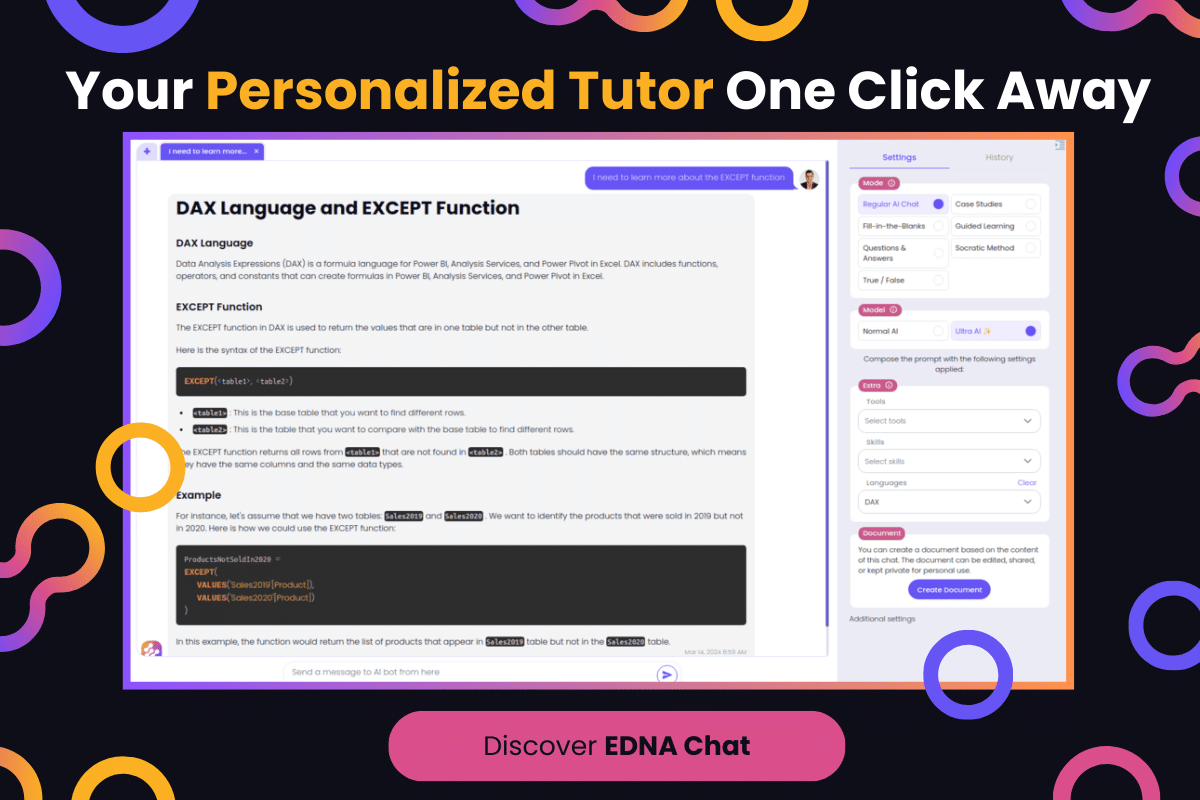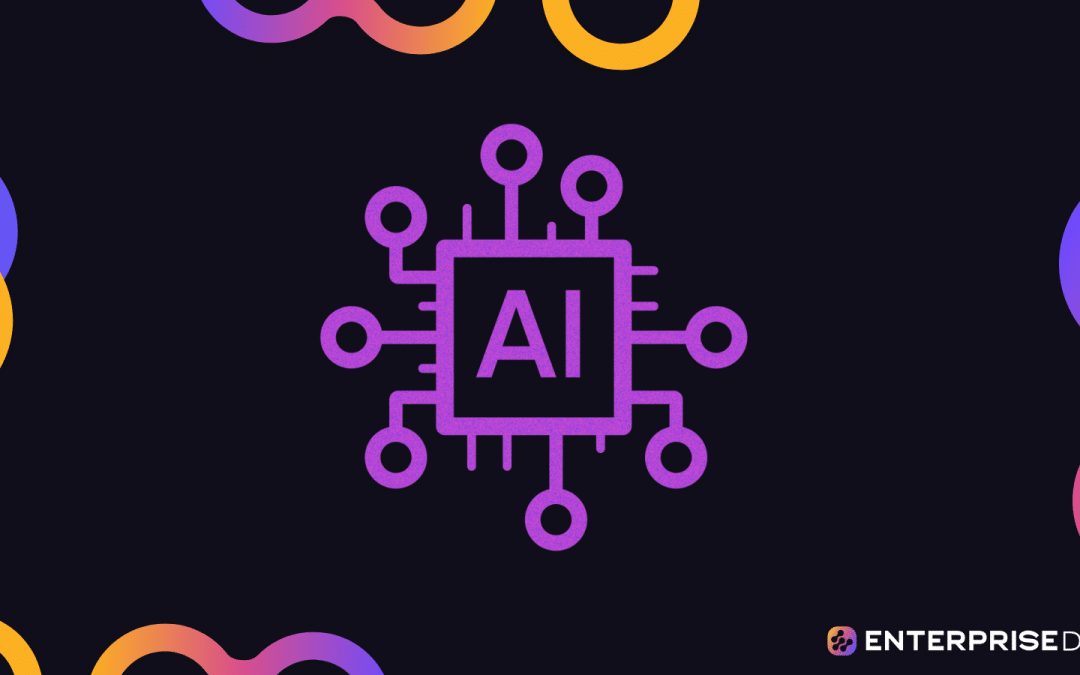In the rapidly evolving space of artificial intelligence, there’s a rising demand for seamless, intelligent conversations between machines and humans. Microsoft’s AutoGen steps onto this stage as a revolutionary framework poised to transform the way we interact with AI systems.
AutoGen is a groundbreaking framework developed by Microsoft that simplifies the creation of advanced Language Model (LLM)-based applications. It enables developers to orchestrate multi-agent conversations, seamlessly integrating LLMs, human input, and tools to revolutionize the world of conversational AI.
In this article, we delve into the world of AutoGen, share the benefits of this powerful framework and give you a step-by-step guide to get you started
Join us on a journey to discover how AutoGen is shaping the future of conversational AI and how it can transform the way your organization operates today. Let’s dive in!
What is AutoGen?
AutoGen is a powerful framework designed by Microsoft to simplify the complex tasks involved in making the most of large language models (LLMs) like GPT-4. It makes it easier to create advanced language model (LLM) applications, and these applications are in turn able to use multiple agents that can chat with each other to solve various tasks.
To better understand this, imagine you have a team of small computer programs, and each of them can talk and understand human language. These programs are like little helpers. AutoGen helps these programs work together to get things done.
One program could be good at writing computer code in Python, like a coding assistant. Another could check the code to make sure it’s correct, like a code reviewer. These programs talk to each other using words, just like people do.
Using Python for AutoGen
The cool thing is, with AutoGen, you can teach these programs new tricks, just like giving them superpowers, and you can also connect them to other tools that help them do even more amazing things.
With AutoGen, you can build a team of these programs, each with its own job. They can work together to create something amazing. It’s like being a team leader of a bunch of little robots that can help you with different tasks.
And the best part is, it’s free to use!
AutoGen Key Features
AutoGen is a powerful framework designed to make it easy to create advanced language model (LLM) applications. It comes with a set of features that enable developers to build and optimize LLM-based applications effortlessly. Here are some key features of AutoGen:
- Customizable and Conversable Agents: AutoGen offers agents that can be tailored to suit specific needs. These agents can engage in conversations with each other and with humans, making them highly versatile and adaptable.
- Multi-Agent Capabilities: AutoGen allows the use of multiple agents that can work together to solve tasks. This multi-agent approach enhances the application’s capabilities and flexibility and maximizes performance.
- Various Operating Modes: AutoGen supports various operating modes, including combinations of LLMs, human inputs, and tools. This flexibility allows developers to choose the most suitable approach for their application.
Native code execution with AutoGen
- Native Code Execution: AutoGen agents support LLM-driven code and function execution, making it suitable for tasks involving coding, debugging, and using provided tools as functions.
- Built-in Agent Library: AutoGen includes a library of built-in agents that can be easily utilized, such as creating automated chat systems between assistant agents and user proxy agents.
- Customization and Embeddability: AutoGen allows you to create customized systems with varying degrees of automation, tailored to your specific environment. These systems can be seamlessly embedded into larger applications.
- Inference API Replacement: AutoGen can be seamlessly integrated as a drop-in replacement for openai.Completion or openai.ChatCompletion. It offers enhanced inference capabilities, including performance tuning, API unification, caching, and advanced usage patterns like error handling and context programming.
AutoGen is a feature-rich framework that empowers developers to create sophisticated LLM applications with ease. Its customizable agents, multi-agent capabilities, and support for diverse conversation patterns make it a valuable tool for building next-generation conversational AI applications.
Benefits of Using AutoGen
Benefits of using AutoGen
AutoGen is a powerful framework designed for creating Large Language Model (LLM) applications that can engage in conversations with multiple agents. This innovative technology offers several significant advantages:
- Customizable Agents: AutoGen allows developers to tailor agents to their specific needs. These agents can leverage the strengths of advanced LLMs, such as GPT-4, and can be adjusted, using prompt engineering techniques, to meet different conversation patterns and objectives, making AutoGen flexible for various applications.
- Intuitive Design: Building complex multi-agent conversation systems with AutoGen involves defining agents and their interactions. This process is intuitive and modular, making agents reusable and composable for various applications.
- Human Integration: AutoGen seamlessly integrates with humans, allowing for human oversight and involvement in the workflow. This integration can enhance the quality and reliability of the system.
Human AutoGen interaction
- Efficiency Boost: AutoGen reduces the need for manual interactions in applications like supply-chain optimization, resulting in a significant reduction in coding effort. It can achieve a 4x reduction in coding work.
- Optimized Workflows: AutoGen simplifies the orchestration, automation, and optimization of complex LLM workflows. It maximizes the performance of LLM models and addresses their limitations effectively.
- Effective Communication: AutoGen’s conversation-centric design naturally handles ambiguity, feedback, collaboration, and user engagement. It enables seamless communication between multiple agents and users, achieving collective goals effectively.
AutoGen is a groundbreaking technology that not only simplifies the development of LLM applications but also enhances their performance and adaptability. With its extensive capabilities and support from collaborative research studies, AutoGen is poised to revolutionize the world of conversational AI.
How to Use AutoGen
How to use AutoGen
Using AutoGen to streamline the development of complex Language Model (LLM)-based applications is a smart choice for developers. Here’s a simple guide on how to make the most of this powerful framework:
Step 1: Installation
First, you need to install AutoGen. You will need Python version >= 3.8 Use:
pip install pyAutoGen
Check out the Installation section on GitHub for more installation information and options.
Step 2: Set Up Python Docker Package (Recommended)
To ensure smooth code execution, it’s strongly recommended to install the Python Docker package. This will help you use Docker, a handy tool for managing software containers. Docker simplifies the process of running and managing your code.
Step 3: Define Specialized Agents
Define a set of agents with specific capabilities and roles for your application. These agents can be customized to perform tasks, interact with users, and integrate with tools.
Step 4: Specify Agent Interactions
Determine how these agents should interact with each other. Decide how they should respond when receiving messages from other agents. This step is intuitive and modular, allowing for the reuse and composition of agents.
Agent interaction with AutoGen
Step 5: Integrate Human Intelligence
AutoGen allows for human intelligence and oversight through proxy agents. You can involve humans at different levels and with varying patterns. For instance, automated task solving can involve both GPT-4 and multiple human users.
Step 6: Harness LLM Capabilities
AutoGen agents can leverage the strengths of advanced LLMs like ChatGPT. You can configure the usage of LLMs within an agent, optimizing performance through parameter tuning. This enables automated complex task solving with the power of language models.
With AutoGen, you can easily harness the power of LLMs and create sophisticated conversational applications tailored to your requirements. Start using AutoGen today to build conversational AI applications with ease and efficiency.
The Future With AutoGen
The Future With AutoGen
In a world where the demand for smarter, more intuitive conversational AI applications is ever-growing, Microsoft’s AutoGen emerges as a game-changer. This innovative framework empowers developers to effortlessly harness the full potential of large language models (LLMs) like never before.
AutoGen simplifies complex workflows, from orchestrating multi-agent conversations to seamlessly integrating human intelligence and tools. With step-by-step guidance and intuitive design, it’s accessible to both seasoned developers and newcomers alike.
As we navigate the frontier of AI-powered interactions, AutoGen’s adaptability and versatility enable the creation of dynamic applications tailored to diverse needs. Whether you’re optimizing supply chains, automating code-based tasks, or revolutionizing group chats, AutoGen is your trusty companion.
Embrace the future of conversational AI. Dive into AutoGen today and unlock a world of possibilities, where LLMs and human ingenuity combine to shape the AI landscape like never before. The future is conversational, and AutoGen is leading the way.
Frequently Asked Questions
What is AutoGen, and what does it do?
AutoGen is a framework developed by Microsoft that simplifies the development of advanced Language Model (LLM)-based applications. It enables the creation of dynamic multi-agent conversations, seamlessly integrating LLMs, human input, and tools for conversational AI applications.
What sets AutoGen apart from other conversational AI tools?
AutoGen’s unique strength lies in its ability to orchestrate multi-agent conversations with customizable agents. It seamlessly combines LLMs, human interaction, and tools, providing a versatile and powerful framework for building conversational AI.
How can AutoGen be installed and integrated into existing projects?
AutoGen can be installed using Python, with compatibility for Python versions >= 3.8. Detailed installation instructions can be found in the official documentation. Integration into existing projects involves defining specialized agents, specifying agent interactions, and customizing the framework to suit your specific needs.
Can AutoGen be used for specific industries or applications?
Yes, AutoGen is highly adaptable and can be used across various industries and applications. Whether you’re optimizing supply chains, automating code-based tasks, or creating interactive group chats, AutoGen offers the flexibility to tailor solutions to your requirements.
Does AutoGen require expertise in machine learning or natural language processing (NLP)?
While having expertise in machine learning and NLP can be beneficial, AutoGen’s user-friendly design and intuitive steps make it accessible to developers with varying levels of experience. It’s designed to simplify the development process for a broader range of users.
Where can I get started with AutoGen and explore its capabilities further?
You can begin your journey with AutoGen by visiting Microsoft’s official resources, including documentation, tutorials, and community forums. These will provide you with the information and support needed to get started and unlock the full potential of this groundbreaking framework.











